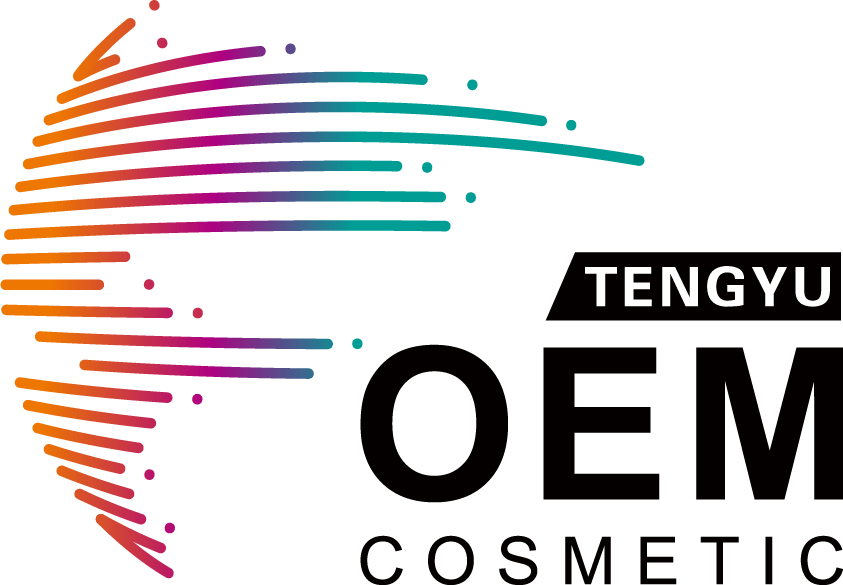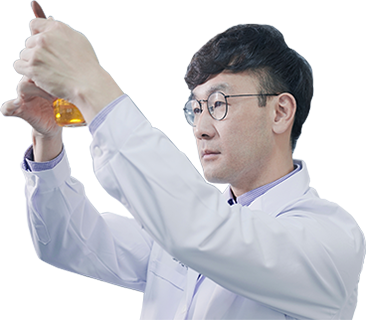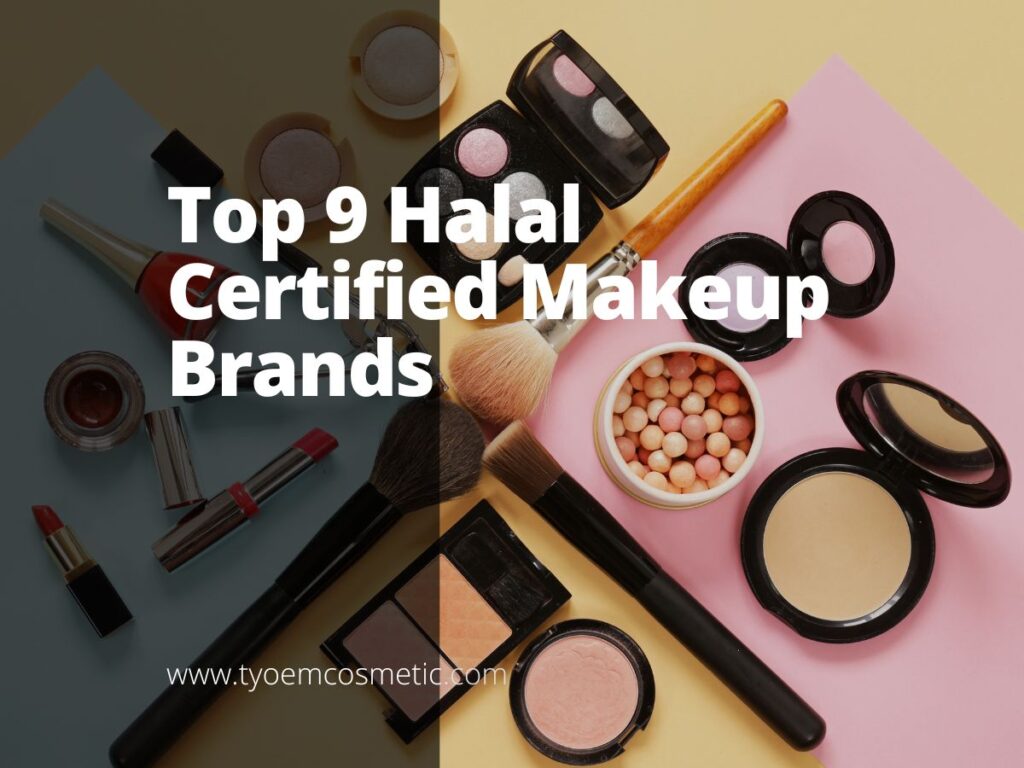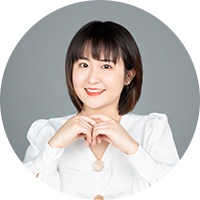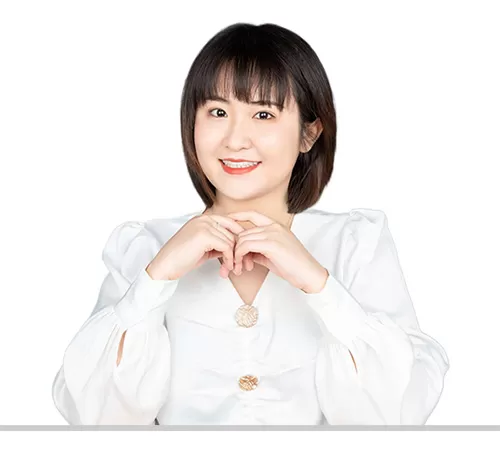Let’s be honest, anyone can slap a “halal” label on their packaging.
But is it really halal? Was it certified? By who?
I started asking these questions after helping a skincare brand in Dubai launch their makeup line. We thought we had found a halal-certified supplier.
Turned out, they only had a self-declared halal claim. No certifying body and no ingredient traceability.
That’s why I built this list, 9 makeup brands that are halal-certified by legitimate organizations and actually meet performance and ethical standards your customers care about.
In this article, you’ll get the details you need:
- Where each brand is based
- What they offer
- Who certifies them
- Whether they’re vegan, alcohol-free, or safe for sensitive skin
By the end, you’ll have a clear path forward with makeup options that match your values, your goals, and your market.
So, let’s start!
Quick Comparison
Let’s pause for a quick side-by-side. If you’re short on time or just want a preview, this table gives you a feel for who’s offering what, halal credentials, product types, and more.
| Brand Name | Location | Main Product Lines | Halal Certifier(s) | Alcohol-Free | Vegan | Inclusive Tones |
| Amara Halal Cosmetics | United States | Full makeup range | ISWA Halal Certification Dept. | Yes | Some | Yes |
| Inika Organic | Australia | Makeup, skincare | Australian Certified Organic (ACO), Vegan Society | Yes | Yes | Yes |
| TY Cosmetic | China | OEM & ODM makeup products | SSPY (Shaanxi Shang Pin Yuan Halal Management Co., Ltd) | Yes | Yes | Yes |
| PHB Ethical Beauty | United Kingdom | Skincare, body care, mineral makeup | Halal Certification Europe (HCE) | Yes | Yes | Yes |
| Tuesday in Love | Canada | Makeup, skincare, nail polish | ISNA Canada, ICSA | Yes | Yes | Yes |
| Iba Halal Care | India | Makeup, skincare, haircare, fragrances | Halal India | Yes | Yes | Yes |
| Wardah Cosmetics | Indonesia | Makeup, skincare, personal care | LPPOM MUI | Yes | Some | Yes |
| Mersi Cosmetics | United States | Breathable nail polish, nail care | ISA, IDCP | Yes | Yes | Yes |
| INGLOT | Poland | Makeup, skincare, nail polish | Liga Muzulmanska | Yes | Some | Yes |
With that comparison in mind, let’s move into the real heart of this guide, where I break down the strengths (and gaps) of every brand listed.
1. Amara Halal Cosmetics
- Location: United States
- Main Product Lines: Makeup, skincare, beauty tools
- Certifying Organization: IFANCA (Islamic Food and Nutrition Council of America)
- Market Reach: USA and international online orders
Amara Halal Cosmetics began in 2011, founded by Shamalia Mohamed. At the time, there were very few options for women looking for makeup that followed both halal standards and everyday beauty needs. Most products either lacked proper certification or included ingredients that raised concerns.
Shamalia built the brand with one goal in mind: to give Muslim women access to cosmetics that are clean, safe, and religiously acceptable. Based in Los Angeles, Amara focuses on plant-based formulas without alcohol or animal by-products. Everything is made in the United States and comes with clear halal labeling.
Since its launch, Amara has grown into a trusted name among Muslim consumers who want cosmetics they can feel good about using every day.
Performance in the Market
You won’t find Amara in major department stores. But scroll through beauty forums or Muslim lifestyle blogs and you’ll notice it mentioned often.
One of my former clients, a small spa owner in Michigan, told me she started offering Amara’s blushes and foundations after a customer asked if her products were halal.
She said, “I didn’t even realize it mattered to so many of my clients. Now it’s one of my top-selling brands.”
Amara focuses on online distribution. That helps them stay accessible to customers across the U.S. and abroad, without relying on large retail chains. Their growth has come from community trust, repeat buyers, and a clear mission.
Inside Their Halal Certification
Amara is certified by IFANCA. That stands for the Islamic Food and Nutrition Council of America.
This certification confirms:
- No alcohol
- No pig or animal-derived ingredients
- All ingredients are traceable
- Production takes place in clean facilities that follow halal standards
IFANCA also looks at how equipment is cleaned, how raw materials are handled, and how packaging is done. This level of detail matters, especially if you serve customers who ask tough questions about purity.
Final Thought
Amara Halal Cosmetics is a steady, reliable brand for businesses that want halal-certified makeup without confusion. If you’re a startup or salon looking to add clean, plant-based products to your shelf, this is a solid place to begin. It covers the basics well, and for many of your customers, that’s more than enough.
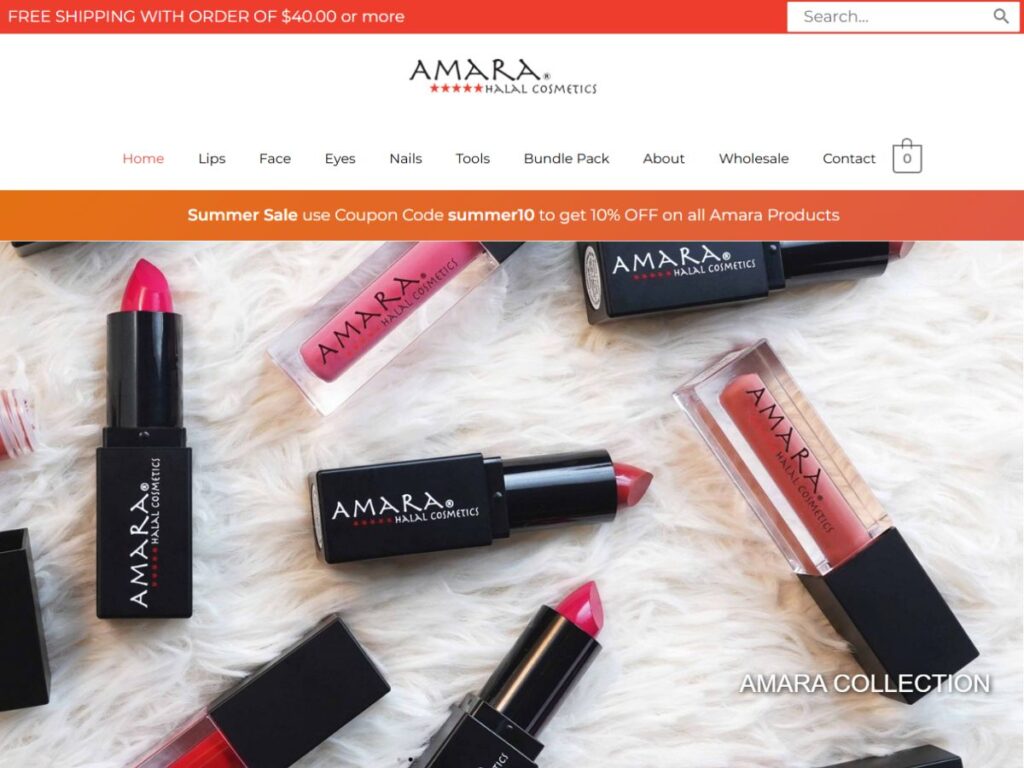
2. Inika Organic
- Location: Australia
- Main Product Lines: Makeup, skincare
- Certifying Organization: Australian Federation of Islamic Councils (AFIC)
- Market Reach: Global distribution with strong presence in Australia, UK, and online
Inika Organic started back in 2006. The goal? To create clean, high-performing makeup without harmful ingredients. Based in Sydney, the company wanted to do more than just skip harsh chemicals. They focused on creating products that are 100% natural, organic, vegan, cruelty-free, and halal-certified.
One thing I love about Inika is that it never feels like you have to trade performance for purity. Their formulas actually work. I’ve had clients in both Europe and Southeast Asia who’ve added Inika to their private label offerings, especially for customers asking for “safe, halal, and elegant.”
That’s rare. And it shows that you can build a clean brand that still delivers on what makeup is supposed to do: look and feel beautiful.
Performance in the Market
Inika isn’t just another clean beauty brand. It’s one of the few that balances certifications with solid product quality.
They’ve won over 40 industry awards for their skincare and makeup. That includes recognition for packaging sustainability, something many customers care about now.
A distributor I worked with in Dubai told me she was amazed by how often shoppers asked specifically for Inika. “It’s one of the few brands that people already know is safe,” she said.
Inika has expanded well beyond Australia. They now ship globally and have stockists in the UK, the Middle East, and parts of Southeast Asia.
They’ve earned trust with both retail customers and wholesale partners. And that kind of trust takes time.
Inside Their Halal Certification
So what makes their products truly halal?
Inika is certified by the Australian Federation of Islamic Councils (AFIC). This means their formulas avoid ingredients that are considered haram, or forbidden. That includes:
- No alcohol
- No pig-derived substances
- No animal by-products like carmine (a red dye made from insects)
Their production also follows cleanliness standards that match halal guidelines. Products are made in dedicated facilities where contamination from non-halal materials is avoided.
Halal certification covers both what’s in the product and how it’s made. That’s a key detail many overlook.
Final Thought
Inika Organic is one of the few brands that delivers on both ethics and performance. It’s clean, it’s halal, and it works. That said, there’s still room to grow. Some clients have mentioned that Inika’s pricing can be a barrier, especially when ordering in bulk or trying to meet margin targets.
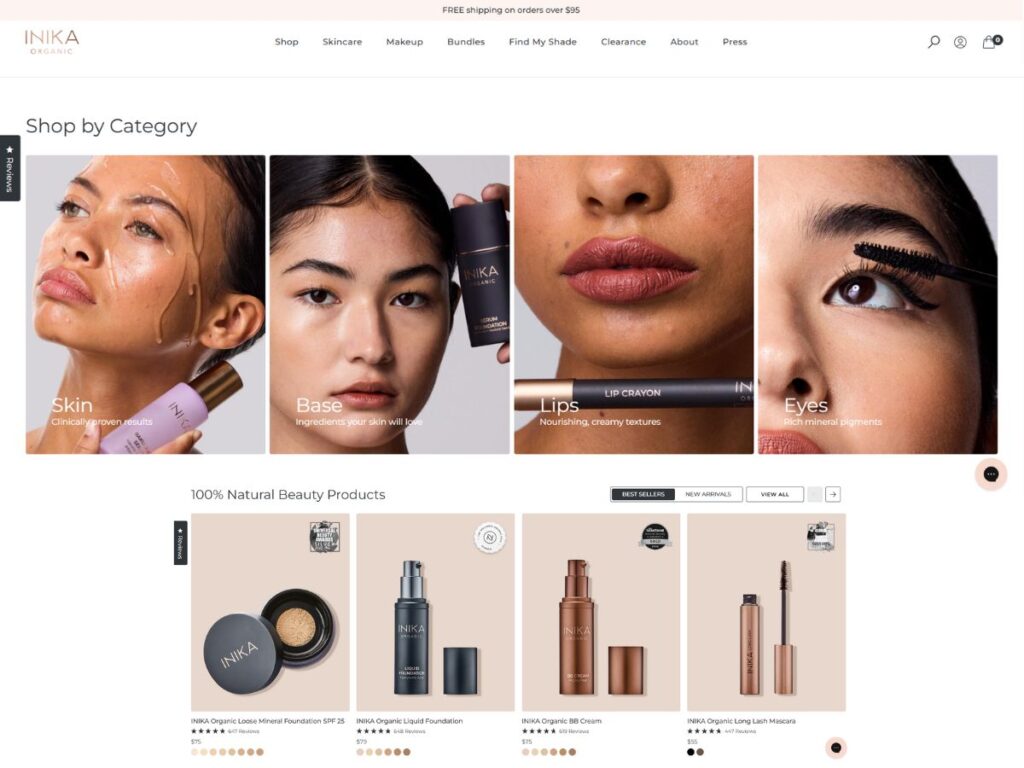
3. TY Cosmetic
- Location: Guangzhou, China
- Main Product Lines: Skincare, body care, hair care, sunscreen, makeup
- Certifying Organization: SSPY (Shaanxi Shang Pin Yuan Halal Management Co., Ltd)
- Market Reach: Serves 2,000+ global brands across Asia, the Middle East, and Europe
If you’ve been searching for a manufacturer that takes halal standards seriously while also meeting your quality and ethical needs, you’re not alone. I’ve worked with clients who’ve tried multiple suppliers—only to find out that “halal” didn’t always mean what they thought. That’s why TY Cosmetic stood out to me.
They don’t just meet halal requirements on paper. They build formulas around your real needs: clean ingredients, sensitive-skin-friendly options, and a wide shade range.
Let’s break it down.
Performance in the Market
TY Cosmetic has built a name in the private-label world by offering something rare: flexibility without compromise. Many of their clients are indie brands who started small and scaled quickly thanks to clear communication and solid formulas.
I’ve seen founders get stuck choosing between a low MOQ and good quality. TY Cosmetic offers both. And in my experience, that’s hard to find.
They also work closely with you on packaging, ingredients, and even product naming—something new founders really appreciate during their launch phase.
Inside Their Halal Certification
Let’s talk halal in more detail.
TY Cosmetic’s halal process is certified by SSPY (Shaanxi Shang Pin Yuan Halal Management Co., Ltd), a halal certifier that meets global Islamic standards and is recognized across Southeast Asia and beyond.
What makes this important?
- Approved by CICOT (Thailand’s central Islamic authority)
- Certified by BPJPH (Indonesia’s official halal body)
- Recognized by MUIS (Singapore)
- Listed under JAKIM (Malaysia)
- Member of WHC (World Halal Council) meaning their halal certificates are accepted in 120+ countries
This wide acceptance means less red tape for your brand if you’re exporting or selling globally. You won’t have to re-certify your product just to reach a new market.
The certification covers ingredient traceability, alcohol restrictions, and overall manufacturing standards. So if your customers ask about purity, you’ll have real documentation to show them.
Final Thought
TY Cosmetic is a strong option if you care about quality, inclusivity, and verified halal practices. They’ve got the infrastructure to support both new and growing brands and the credentials to give you peace of mind. However, they are a bit smaller compared to some other manufacturers, which may limit scale or specialization in certain areas.
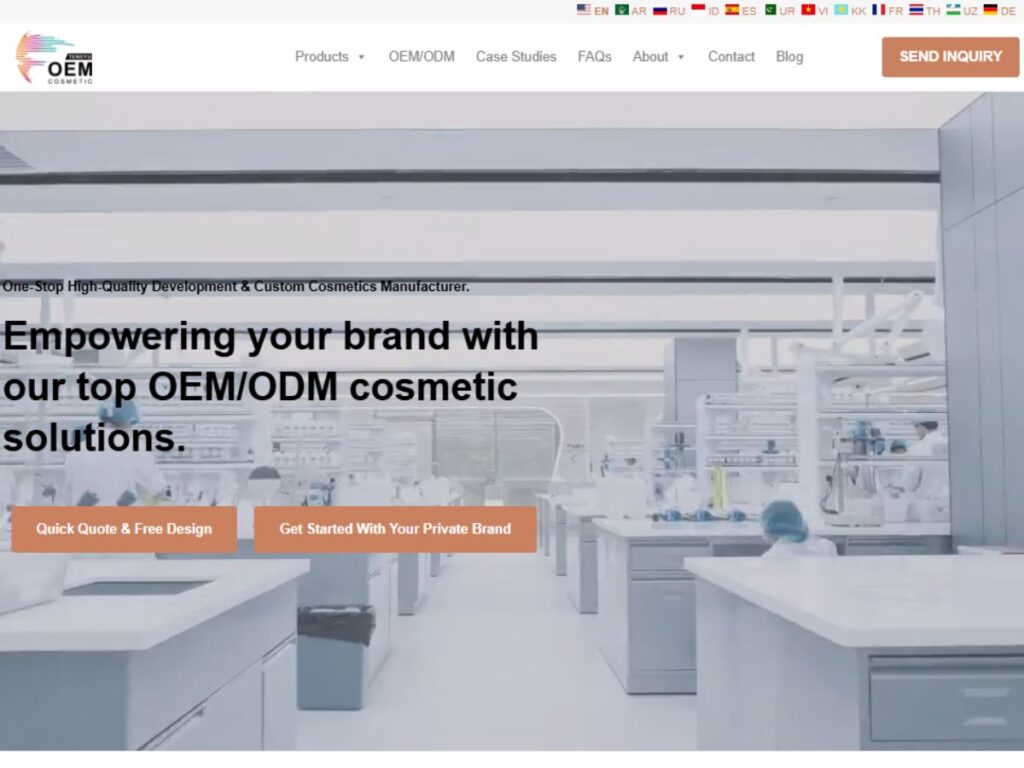
4. PHB Ethical Beauty
- Location: United Kingdom
- Main Product Lines: Skincare, makeup, haircare, bodycare
- Certifying Organization: Halal Certification Body (UK-based), PETA
- Market Reach: Global shipping with a strong UK base
PHB Ethical Beauty is a family-run brand founded in 2012 and based in Birmingham. Their name stands for Pure, Handmade, British. But their focus goes far beyond just those three words.
They make everything themselves in the UK. That means complete control over what goes into their formulas. It also means you know exactly who’s behind the brand.
I once worked with a client in Dubai who stocked PHB in her boutique spa. She loved that it was halal, vegan, and cruelty-free all at once. Her customers? They came back for the gentle serums and the mineral foundation that didn’t irritate their skin.
PHB is one of those brands that speaks quietly but carries a strong message: good ingredients, ethical practices, and clear labeling matter.
Performance in the Market
Let’s talk about presence.
PHB might not be as flashy as big global names, but their values carry weight. They’ve built a loyal audience across the UK, Europe, and the Middle East. That’s not by chance, it’s because they lead with transparency.
They’ve also donated a portion of profits to charity since day one. That makes a difference, especially for customers who want to support a mission-driven brand.
One distributor I worked with said PHB’s products practically sold themselves once people tried them. The makeup is gentle. The skincare is soothing. And the branding speaks to those who want “clean” to mean something real.
Still, PHB stays small and focused. They don’t try to be everything to everyone. And sometimes, that works in their favor.
Inside Their Halal Certification
PHB’s halal certification is clear and covers both ingredients and production practices.
That means:
- No alcohol or alcohol derivatives
- No pig or animal-derived ingredients
- Certified by a UK-based body that focuses on beauty and personal care
The certification is not just about checking a box. It’s backed by lab testing and strict facility checks. That includes how ingredients are sourced and how products are made.
PHB’s formulas also avoid genetically modified ingredients and harsh chemicals. That’s a bonus for people who want a clean experience from start to finish.
Final Thought
PHB Ethical Beauty is a strong option for salons, spas, or retailers who want to offer safe, ethical beauty with a clear mission behind it. Still, there’s room to grow. Their color range could be more inclusive, and their packaging feels more natural than premium. If you’re serving a luxury market, you might need to pair PHB with another brand.
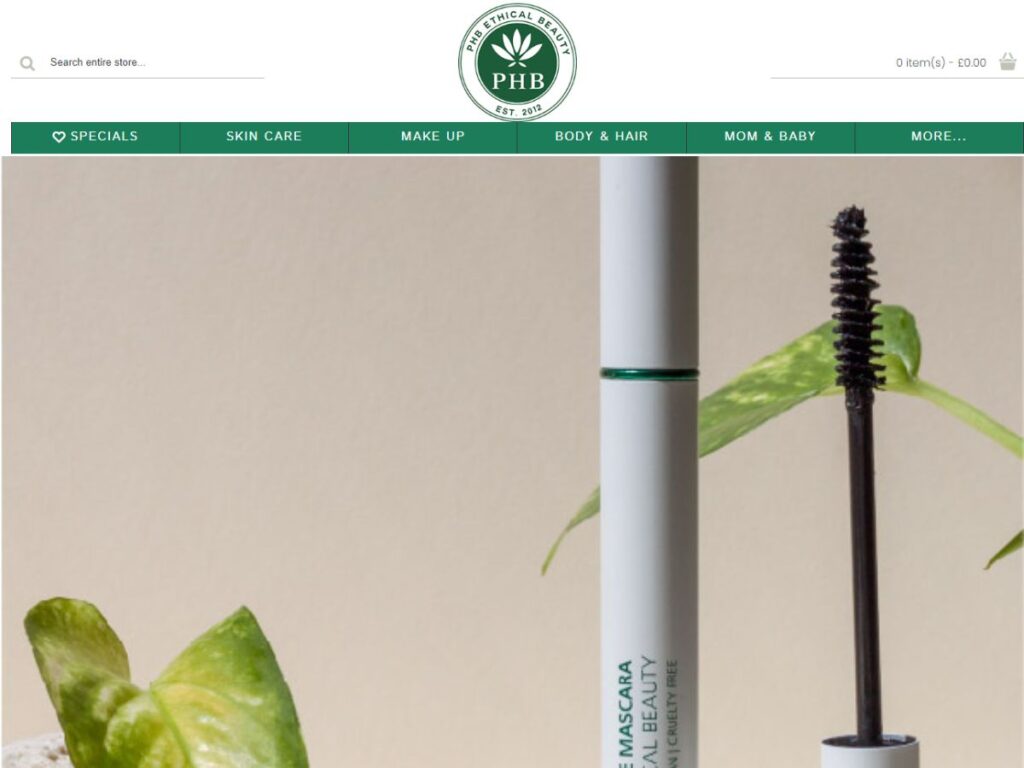
5. Tuesday in Love
- Location: Canada
- Main Product Lines: Halal nail polish, makeup, skincare, fragrances
- Certifying Organization: Halal Certification Services of Canada (HCSC)
- Market Reach: North America and international online customers
Tuesday in Love is best known for something very specific: water-permeable, wudhu-friendly nail polish. Founded in Canada, the brand started with a mission to create beauty products that don’t interfere with religious practices.
The name might sound playful, but the products are backed by science. They even use lab testing to prove their nail polish allows water to pass through. This matters during wudhu, the washing ritual Muslims perform before prayer.
I remember a client in Malaysia who said her customers were tired of “breathable” nail polishes that didn’t really work. After switching to Tuesday in Love, complaints stopped. Sales went up. It was the confidence her store needed.
This brand gives buyers a real solution and that’s what builds loyalty.
Performance in the Market
Tuesday in Love is still growing, but they’ve made a name for themselves through direct customer connection.
They focus on e-commerce, especially in Canada and the U.S. But I’ve seen buyers in Southeast Asia and the Middle East bring them in for their niche value.
Their biggest hit remains the UV gel halal nail polish. But their full product line includes makeup, skincare, and even perfume.
So why do people choose them? Because the products do what they say. The brand backs up claims with lab data. And customers notice.
They’ve also become known for having safe, gentle formulas. No harsh chemicals. No animal testing. That’s a big plus for parents shopping for teens or for anyone with skin concerns.
Inside Their Halal Certification
Tuesday in Love is certified by HCSC, a respected body in Canada.
What makes their certification stand out is that it’s functional as well as ingredient-based. This means:
- No alcohol or banned ingredients
- Lab-tested for water permeability
- Approved for wudhu use
That’s a big difference compared to some brands that only certify the ingredients. Tuesday in Love goes further by testing how the product behaves during actual religious practice.
They’ve also earned praise for being child-labor-free and cruelty-free. Their standards cover ethics and function.
Final Thought
If you’re looking for a brand that solves a real problem, halal nail polish that actually works, Tuesday in Love is your answer. It’s a great fit for salons, nail bars, or shops that serve Muslim women who care about both beauty and faith. Still, they’re not perfect. Their foundation and blush lines could grow in color range. And their focus on nail polish sometimes overshadows the rest of their products.
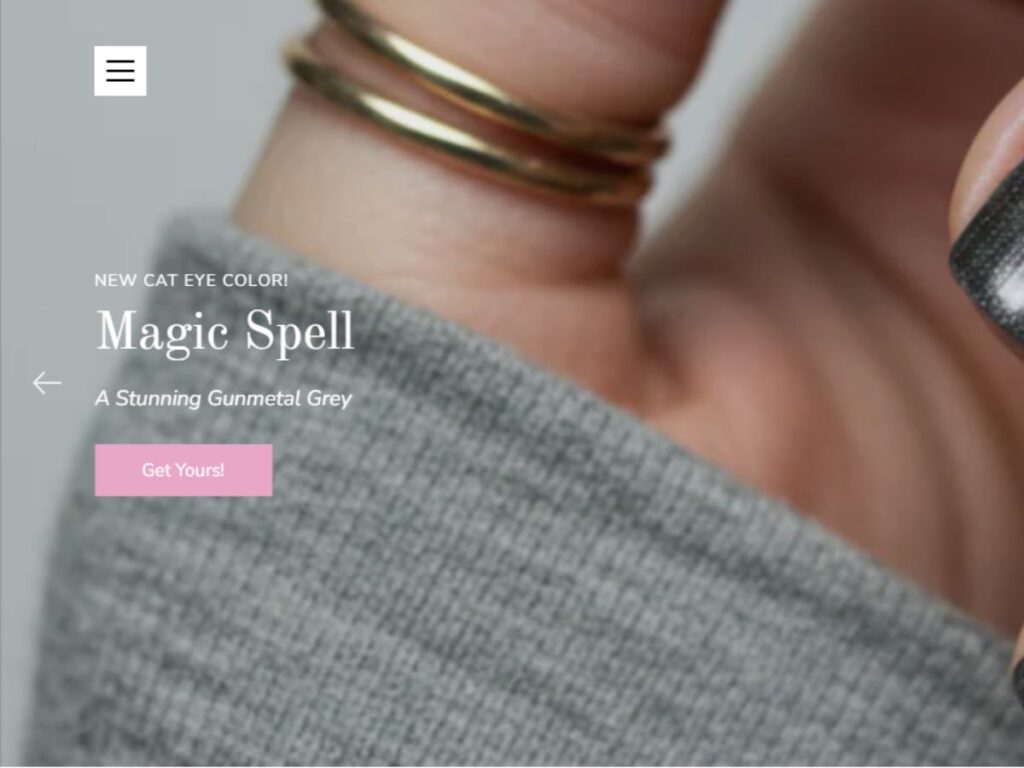
6. Iba Halal Care
- Location: India
- Main Product Lines: Makeup, skincare, haircare, personal care
- Certifying Organization: Halal India
- Market Reach: India with growing international interest
Iba Halal Care is the first halal-certified beauty brand to launch in India. Founded by two sisters, Mauli and Grishma Teli, it was built on a simple but powerful idea: beauty should never compromise your values. I still remember the first time a distributor from Ahmedabad asked me if I knew any brands that were halal, vegan, and affordable. I gave her one name—Iba.
What makes Iba different is how accessible they’ve made halal beauty. Most brands in this space are positioned as luxury or niche. But Iba is made for everyday people. They focus on natural ingredients, clear labeling, and products that fit a wide range of skin types and budgets.
Their product line is big. From BB creams to shampoos, lipstick to face wash, Iba has become a one-stop shop for halal personal care in India.
Performance in the Market
Iba has grown fast, especially in cities like Mumbai, Delhi, and Bangalore. Their pricing is competitive, which helps salons and resellers attract a broader customer base. One client told me, “Customers walk in asking for Iba by name. That never used to happen with any of our makeup brands.”
Their growth has also been helped by strong digital marketing. They’ve partnered with influencers, launched on major Indian e-commerce sites, and built trust through transparency. The brand is PETA-certified, vegan, and free from animal testing, which adds even more credibility.
And they don’t stop at makeup. Their hair oils, moisturizers, and facial kits are also big hits, especially for customers looking for gentle, skin-safe options.
Inside Their Halal Certification
Let’s talk about certification. Iba is approved by Halal India, a recognized certification body that audits everything from ingredients to facility hygiene.
This means:
- No alcohol
- No pig or animal-derived ingredients
- No harsh chemicals
- Clean manufacturing conditions
They also avoid sulfates and parabens in many of their formulas. These are often used in cosmetics to create foam or preserve shelf life but can irritate sensitive skin.
Iba’s approach is gentle but thorough. Every product comes with the halal stamp right on the label, so you don’t have to guess.
Final Thought
If you’re looking for a halal brand that’s affordable, accessible, and already well-known in India, Iba Halal Care is a solid choice. It’s perfect for budget-conscious customers who want clean ingredients without high prices. That said, there are some things to keep in mind. The packaging feels basic. And while the shade range is decent, it may not cover very deep skin tones.
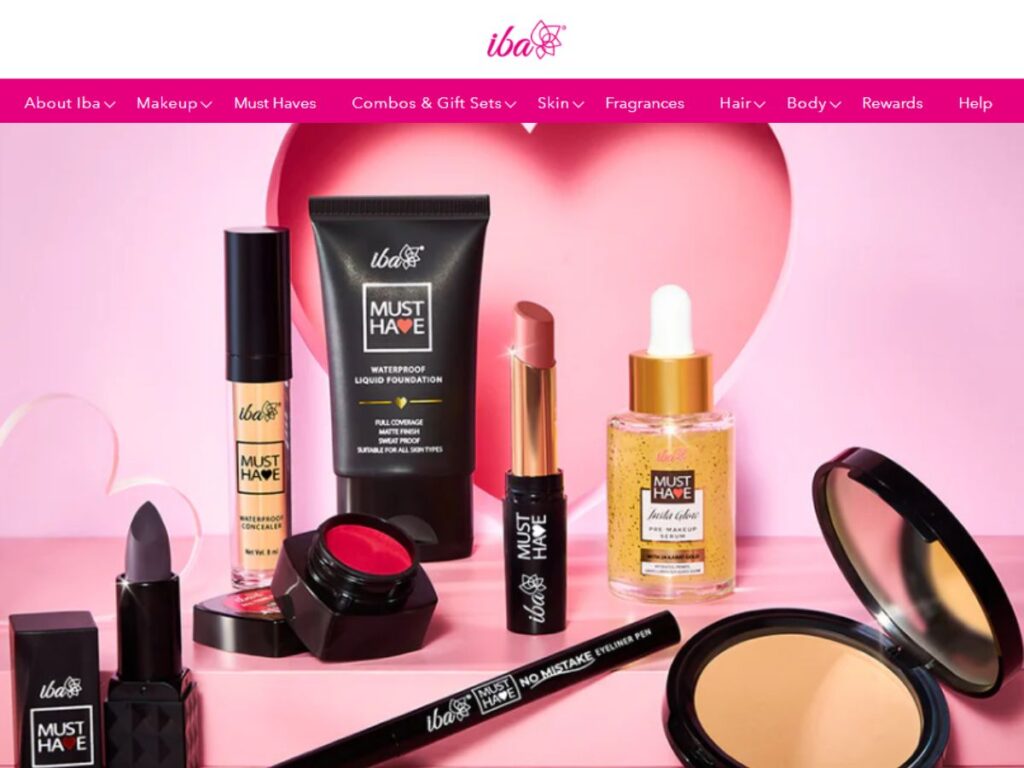
7. Wardah Cosmetics
- Location: Indonesia
- Main Product Lines: Makeup, skincare, haircare, bodycare
- Certifying Organization: LPPOM-MUI (Indonesia)
- Market Reach: Strong in Southeast Asia, expanding globally
Wardah is more than a brand in Indonesia, it’s a household name. Founded in 1995, it was the first cosmetic company in the country to receive halal certification. That’s huge. It gave Indonesian women a reason to feel confident about their makeup choices.
What I’ve always admired about Wardah is how it blends tradition with innovation. You’ll find their products in small local shops, department stores, and online. They offer everything from lip creams to acne treatments, and they do it with a clear focus on halal values.
I remember a beauty salon owner in Kuala Lumpur who told me, “We don’t even have to explain what Wardah is. Customers already trust it.” That kind of brand recognition doesn’t come easy.
Performance in the Market
Wardah has dominated the Indonesian market for years. They were among the top-selling beauty brands on e-commerce platforms across the country. Their “Halal Green Beauty” campaign boosted their popularity even more, especially with younger shoppers.
Their expansion into Malaysia has also been successful. They’re now one of the biggest Indonesian beauty exporters. That means if you’re in Southeast Asia, Wardah is already on your customer’s radar.
Their product variety is another plus. You’ll find foundations, serums, eyeliners, and even body mists. Everything is designed to be gentle on skin and aligned with religious guidelines.
Inside Their Halal Certification
Wardah is certified by LPPOM-MUI, one of the most respected halal authorities in Indonesia.
This includes:
- No alcohol
- No non-halal animal ingredients
- Certified halal production facilities
- Ingredient traceability
Their halal label is easy to find on packaging, which helps build customer trust. This certification not only applies to what’s inside the product but also how it’s made, stored, and packaged.
Wardah follows strict hygiene and purity standards at every step.
Final Thought
Wardah is a safe bet if you’re looking for a trusted halal brand with wide appeal. It’s especially strong for salons or stores located in Southeast Asia, where customers already know and love it. Still, there’s space for improvement. Their makeup shade range could grow to better reflect global skin diversity. And some of their packaging might feel a bit simple if you’re aiming for a luxury feel.
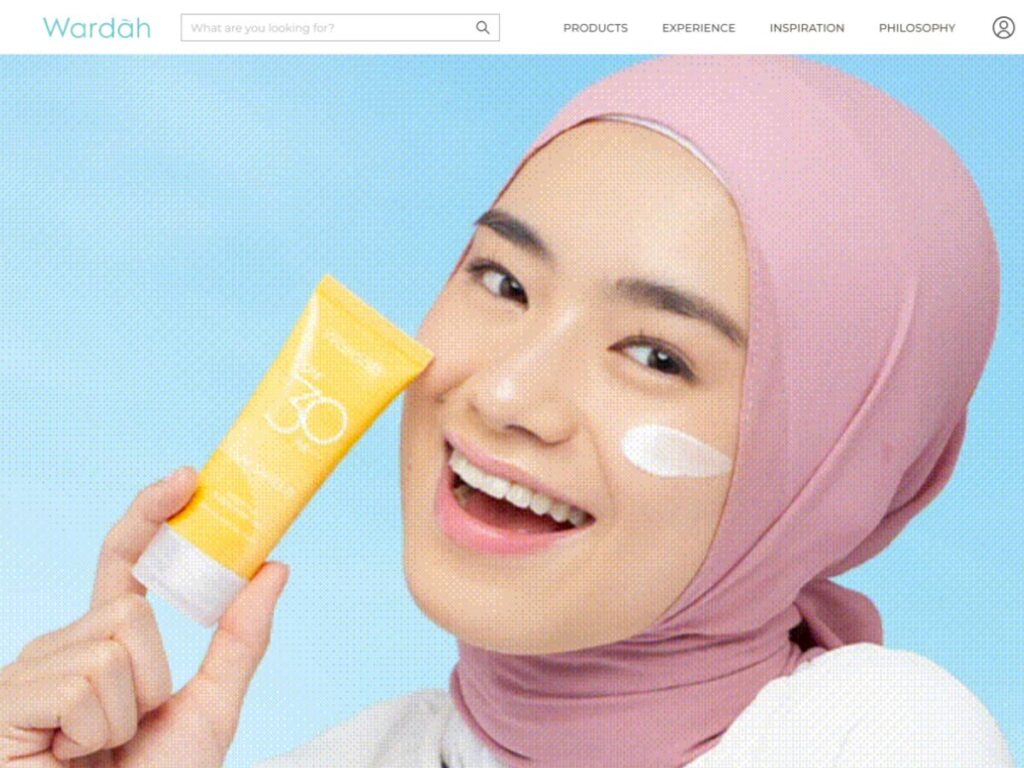
8. Mersi Cosmetics
- Location: United States
- Main Product Lines: Breathable nail polish, nail care treatments, removers, accessories
- Certifying Organization: Islamic Services of America (ISA) and IDCP Halal Council
- Market Reach: United States and select international markets
Mersi Cosmetics is a brand that took a specific niche, halal nail polish, and gave it serious attention. Based in the U.S., Mersi focuses on breathable, water-permeable nail polish that’s certified for both ingredients and function. If you’ve ever searched for nail products that meet religious standards and still look beautiful, you know how rare that is.
What makes Mersi stand out is their commitment to clean beauty. Their polishes are made in the U.S., free from 21 harmful chemicals, and come in colors that feel modern and wearable. I once had a client in California who added Mersi to her online store just to test the waters. Within two months, it became her most reordered product.
So what’s behind that kind of loyalty? Let’s take a look.
Performance in the Market
Mersi isn’t a huge brand, but it’s growing and fast. Their customer base includes Muslim women, ethical beauty buyers, and even those just looking for safer polish. Their website highlights glowing reviews about how smooth and glossy the colors look. Many users love that the polish holds up just as well as conventional brands but without all the harsh chemicals.
They’ve also gained trust by being transparent. They post lab test results, explain how water permeability works, and even show the exact levels used to meet wudhu (ablution) standards. That kind of openness goes a long way in this space.
Their nail care range includes polish removers, strengthening treatments, and soy-based formulas. It’s a thoughtful product lineup for customers who want more than just pretty colors.
Inside Their Halal Certification
Mersi Cosmetics is certified by ISA, a long-standing halal certification body in the U.S., and also verified for wudhu compliance by the IDCP Halal Council. That second part is key.
Why? Because many brands say their polish is “breathable,” but don’t prove it. Mersi does. They lab-test their formulas for water permeability using scientific equipment. And it’s not just marketing. The results are made public.
Here’s what their certification includes:
- No alcohol or pig-based ingredients
- No animal by-products
- Lab-tested water permeability
- Packaging and production under halal guidelines
This makes Mersi one of the few nail polish brands you can confidently offer to customers who pray and need wudhu-friendly options.
Final Thought
Mersi Cosmetics is a great choice if your focus is halal, breathable nail polish that delivers on style and safety. It’s ideal for nail salons, boutiques, or online stores that cater to health-conscious or faith-based customers. There’s room to grow, though. Mersi could expand into color cosmetics like lipsticks or eye makeup. And their branding is more soft and natural, less glam, so it may not attract customers looking for bold packaging.
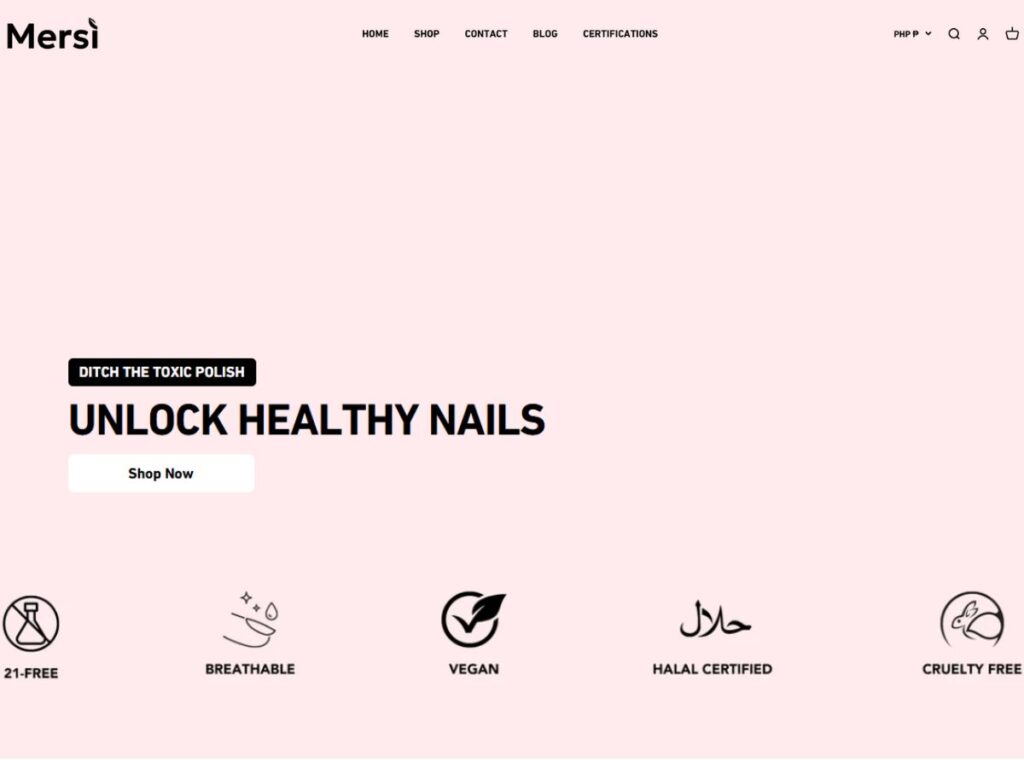
9. INGLOT
- Location: Poland
- Main Product Lines: Makeup, skincare, nail products, tools
- Certifying Organization: Liga Muzulmanska (Muslim League in Poland)
- Market Reach: Over 300 stores in more than 80 countries
INGLOT is one of the most recognized names on this list. Founded in Poland in 1983, the brand has grown into a global cosmetics powerhouse. You’ve probably seen them in malls, airport duty-free shops, or makeup artist kits.
But what you might not know is that many of their products are halal-certified—including their famous O2M breathable nail polish line.
One of my past clients, a salon owner in Dubai, told me she loved INGLOT because it felt “big-brand professional but still halal-approved.” That mix of credibility and convenience is hard to find.
Performance in the Market
INGLOT is a well-established brand. Their expansion into the Middle East, Asia, and North America has been strong, and they’re known for their professional-grade formulas and wide shade range.
Their “Freedom System” lets customers build custom palettes, something that adds real value in retail and salon settings. Whether you’re stocking eyeshadows, blushes, or brow powders, you get to control what goes in.
But the O2M nail polish line is what really sparked interest in halal buyers. It was one of the first polishes to be marketed as breathable, though the water permeability claims have sparked some debate.
That’s where it gets interesting.
Inside Their Halal Certification
INGLOT is certified by the Liga Muzulmanska (Muslim League in Poland). Their halal certification covers the production process, ingredients, and general handling of products.
However, it’s important to point out: while INGLOT’s O2M nail polish is labeled as breathable, the certification body relies on INGLOT’s internal testing. Some sources, including other halal nail brands, have raised concerns that the polish might not meet strict wudhu standards.
That doesn’t mean the ingredients aren’t halal. But if your customers are focused on wudhu-friendly products, you may want to explain the difference between ingredient certification and functional use.
What the halal certification does include:
- No alcohol or haram animal ingredients
- Certified clean facilities
- Ingredient transparency
Final Thought
INGLOT is a powerhouse brand with halal-certified options, making it a rare mix of global scale and ethical compliance. It’s perfect for salons, makeup artists, or retailers who want to offer professional-grade makeup with halal labeling. That said, there are some things to be cautious about. Not all products are halal-certified, and the breathable nail polish may not meet the strict needs of customers who perform daily prayers.
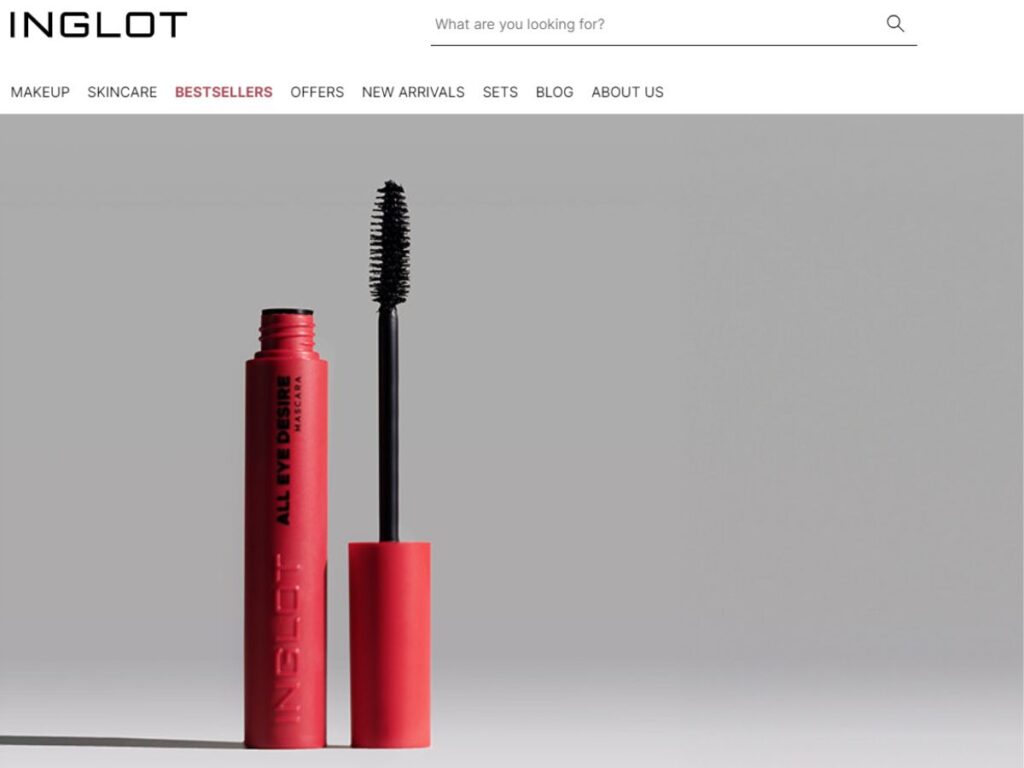
Dive Deeper Into Our Resources
For some insightful reads, we’ve curated a list of recommended articles just for you:
Still haven’t found what you’re looking for? Don’t hesitate to contact us. We’re available around the clock to assist you.
Conclusion
We’ve looked at 9 Halal-certified cosmetic brands from across the world.
Now you know:
- What Halal beauty users value most
- Which certifications carry real weight
- How each brand stacks up
This guide wasn’t just about listing names. It was about helping you decide. About giving you confidence.
So, what’s stopping you?
If you’re ready to bring Halal cosmetics into your store or private label, now’s the time to act.
Have questions? Contact TY Cosmetic today. We’d love to help.
